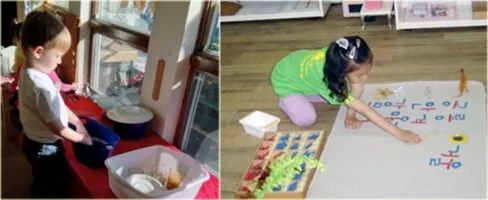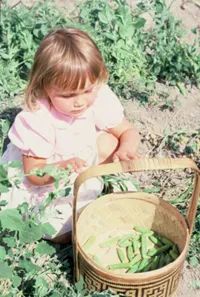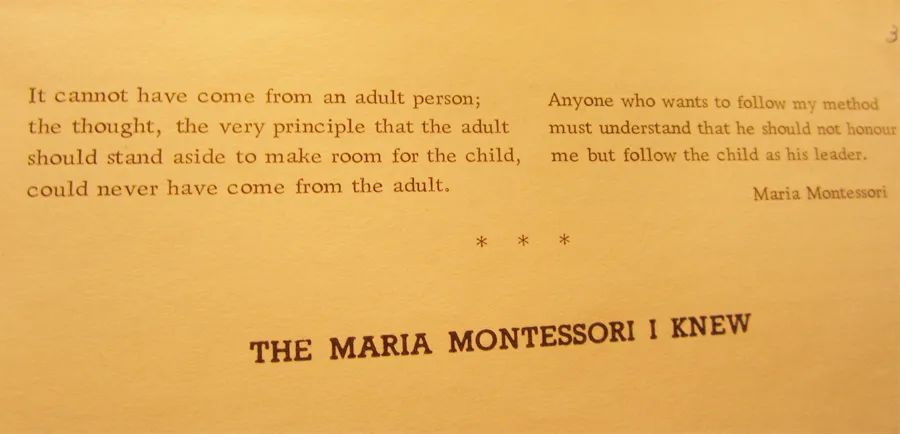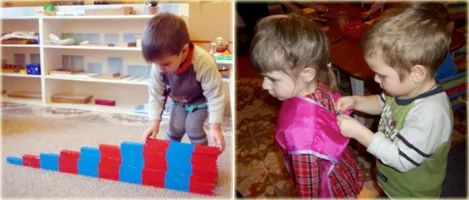It’s Spring!
 It is spring, at least according to the calendar. I don’t know about where you are, but here in Bozeman it is about 17 degrees after a few tantalizing days of 60. I guess I have to be a bit more patient. It will come! The flowers will bloom. This whole process of waiting for spring reminds me of Montessori’s process of watching and waiting for normalization to occur. We sow the seed and then we may wonder – how does it grow? Is it what we do? I think not; it is nature’s way, if the sun and rain and soil are there. A few precious years ago I was in Amsterdam and visited the former home and office of Maria Montessori. For me, it was a little like being in Montessori heaven!
It is spring, at least according to the calendar. I don’t know about where you are, but here in Bozeman it is about 17 degrees after a few tantalizing days of 60. I guess I have to be a bit more patient. It will come! The flowers will bloom. This whole process of waiting for spring reminds me of Montessori’s process of watching and waiting for normalization to occur. We sow the seed and then we may wonder – how does it grow? Is it what we do? I think not; it is nature’s way, if the sun and rain and soil are there. A few precious years ago I was in Amsterdam and visited the former home and office of Maria Montessori. For me, it was a little like being in Montessori heaven!

I spent many hours looking through old archives, focusing on newsletters she wrote to her followers in the 1930s.
As I was preparing to write this article, I was reminded of some things I read and photographed while I was there. Here are some snippets of one of these articles from November 1939 that speaks of the seed and its fruit.
The Seed We Sow is the Seed of Hope
“We are united by a faith that rests upon a reality. This faith has gradually grown deeper through so many vicissitudes. We possess a certainty given by phenomena upon which we always draw our attention. We are convinced that the child has great possibilities and by developing them we help further the elevation of the human individual and society. At the other hand we see a great many errors accumulated in mankind of today. Yet man always tries to do his best and direct his courage towards an upraising of his being. This may give us great hope!"
 Word building in Korean and dish washing in New York…
Word building in Korean and dish washing in New York…
examples of the reality that has given us faith in what the child can do.

“All that man has accomplished in society has been achieved exclusively by the work of the adult. There cannot be the slightest doubt, however, that mankind does not consist of adults only, but that also the child who will develop into an adult being is an important personality who must be taken into consideration in society.”
In another of the newsletters she speaks of the amazement that the child could actually lead us to a greater understanding of life. We plant seeds and have great faith that we do not have to force them to grow. Even the child can understand the wonder of how nature works (although, I have to admit, I have seen three-year-olds pull up a seedling to see if it is really growing under the ground!)
Have Faith in Me
 This little girl waited patiently as her classroom garden bore its fruit.
This little girl waited patiently as her classroom garden bore its fruit.
Now she has the joy of harvesting and then eating the produce she grew.

Yet we sometimes have so little faith in our children and the life force within them that helps them to grow. It never ceases to amaze and delight me that learning is as natural to the child as breathing. As Dr. Elisabeth Caspari often reminded us, if we prepare the environment, the children will work. You can prepare this environment in your home, in your back yard and of course, in your schools. Maria Montessori has given us keys to prepare an environment that meets the developmental needs of the child, and then we can follow the child as our leader. This does not mean we relinquish our role as parent or as teacher, but it does mean that we allow the child the freedom to choose his work and to build himself out of the choices he makes. If you plant a garden you know that the dahlia bulb will yield a dahlia, not a geranium. If you plant daisies you will get daisies and not roses. Perhaps that same principle is true with our children. The only thing is that we don’t have a seed packet to read the label! Only by our observation and tender care for our children as they reveal to us their interests and special abilities do we really learn who they are.

Little Workers
Montessori wrote about the child as a worker who reveals a new reality and it is our prejudice If therefore, one day it is discovered that the child is a great worker, who can apply himself to his work even with concentration, who can learn by himself, teach himself and who possesses discipline within himself, this seems to be like a fairy tale. It does not evoke surprise; it only appears utterly absurd. No attention is paid to this reality, and hence no conclusion is reached to the effect that in this apparent contradiction may be hidden an error on the part of the adult…. The greatest difficulty in the way of an attempt to give freedom to the child and to bring its powers to light does not lie in finding a form of education which realizes these aims. It lies rather in overcoming the prejudices which the adult has formed in this regard.

As they work, just like the various plants in our garden work together to make the landscape more beautiful, so perhaps our children can teach us something about how we can work together. Montessori wrote about the child and the building of community: Now the little child who manifests perseverance in his work as the first constructive act of his psychical life, and upon this act builds up internal order, equilibrium, and the growth of personality, demonstrates, almost as in a splendid revelation, the true manner in which man renders himself valuable to the community.
To all our readers, happy spring!























